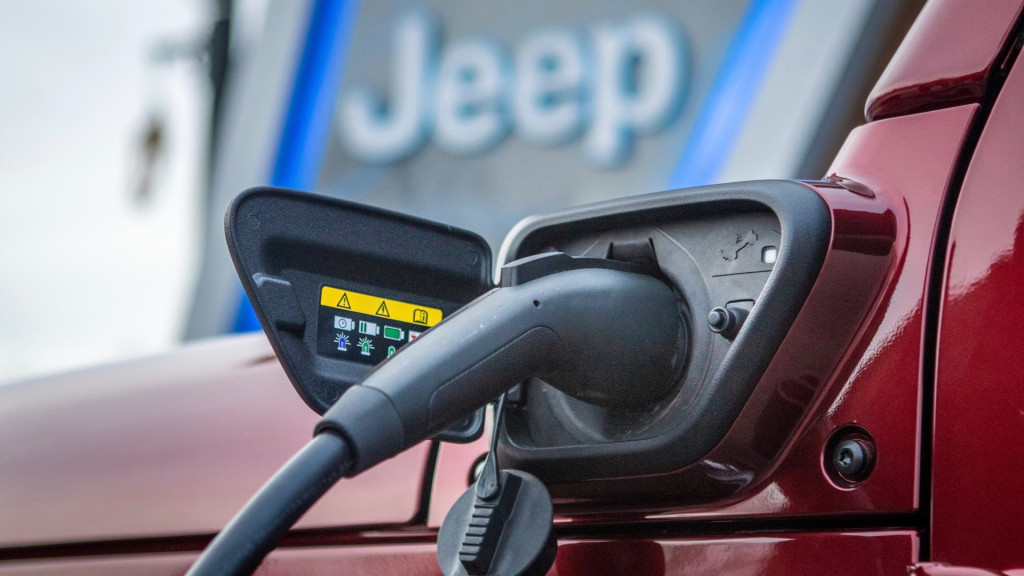Funding for new EV chargers is a major feature of the Biden administration’s infrastructure law, but the law is now also freeing up $100 million to replace existing chargers that don’t work.
The White House on Wednesday announced that it was accepting applications for this funding, under a new program called the Electric Vehicle Charger Reliability and Accessibility Accelerator. Applications are due by November 13.
The program is “informed” by the U.S. Department of Energy’s Alternative Fuels Data Center (AFDC) charging-station locator, according to a White House press release. The AFDC tracks which public charging stations are temporarily unavailable. As of September 11, AFDC data indicated 6,261 stations were unavailable, or 4.1% of the 151,506 stations nationwide.
2022 Chevrolet Bolt EUV at EVgo fast-charging station
Based on estimates like this, the White House expects the $100 million being set aside for replacement of unreliable chargers will cover all eligible projects. That includes both public charging stations and privately owned stations that are publicly accessible without restrictions.
The infrastructure law sets aside $5 billion for EV charging under the National Electric Vehicle Infrastructure (NEVI) formula program, with the goal of creating a nationwide network of 500,000 chargers. The law also stipulates a 10% set-aside for grants to states and localities requiring “additional assistance” to deploy EV charging infrastructure, according to the White House. The charging-reliability program utilizes the first round of funding from that source.

Electrify America Jeep 4xe Charging Network
This is one of the steps the federal government is taking to tackle reliability issues—including the establishment of data reporting on charger downtime. That applies to chargers built with NEVI funding, which stipulates an average annual uptime of greater than 97% per charging port, excluding scheduled maintenance, vandalism, and natural disasters. Limited hours of operation will also be allowed in some cases—although stations along Alternative Fuel Corridors need to be open 24/7.
Charger unreliability is significant issue. According to J.D. Power, 1 in 5 charging attempts fails, in part due to nonfunctioning chargers (long lines were found to be another factor). And a study published last year of California fast-chargers found many “nonfunctioning.”
